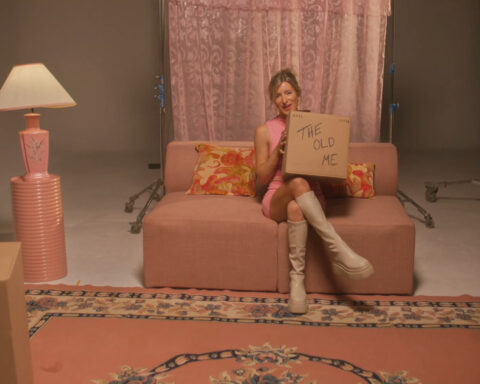I came across an interview this morning on the Sydney Morning Herald (SMH) about Rita Ora and her party girl image – which I wouldn’t have thought after watching her episode of Louis Theroux Interviews… – showcasing Rita’s embrace of her party girl image coming across as a shallow attempt to justify and glamorise a lifestyle that raises legitimate concerns. While Rita’s stance is portrayed in the article/subsequent interview as empowering, the article’s author fails to explore the underlying issues and consequences associated with Rita’s party-centric persona.
One of the prominent issues with the article is the lack of critical examination of Rita’s motivations for celebrating her party girl image – I understand the SMH’s message is to spotlight how “fun and out-going” Rita is – instead of actually exploring whether the fact her public persona is a genuine expression of her real self or a calculated marketing strategy designed by her public relations team; the article just presents her statements at face value without questioning the legitimacy of her statements. You would be remiss to think the approach undermines the potential manipulation and commercialisation of her image for the sake of maintaining relevance and garnering attention; even if it did get me to click on the article and hence, post about her life.
What I found was, that the article sidesteps the broader societal implications of glorifying a party lifestyle. By presenting partying as a badge of honour, the article neglects to address the multiple potential impacts of messaging on impressionable audiences, particularly young fans who might be influenced to prioritise reckless partying over more meaningful pursuits, as they deem it to be “cool” because Rita says so. The lack of consideration for social responsibility is a significant oversight by the author of the article.
The article also lacks a perspective on the consequences of Rita’s choices. While it does mention disapproval of her lifestyle from family, it fails to explore the potential strain on her personal relationships, professional credibility, and mental well-being that can arise from a relentless partying lifestyle. Ignoring these aspects reinforces a shallow and one-dimensional portrayal of Rita’s “reality”.
Another thing worth mentioning is that the article’s portrayal of partying – as a means of genuine connection – oversimplifies the complexity of human interaction; while parties can serve as social gatherings; the article’s author – and Rita to an extent – try to equate them with meaningful connections disregards the importance of deeper, more authentic relationships that require time, effort, and open-vulnerability to cultivate.
I really like Rita Ora, however, from reading the SMH article, it doesn’t critically assess Rita’s party girl image, and fails to explore the potential manipulation, societal impact, and personal consequences associated with her lifestyle – even if the purpose of the article is to highlight how proud Rita is of her carefree lifestyle – the article presents a superficial and uncritical view that does a disservice to easily influenced readers seeking more well-rounded understanding of choices and implications.
The article would have been better if it was presented similar to Diary of a CEO.











